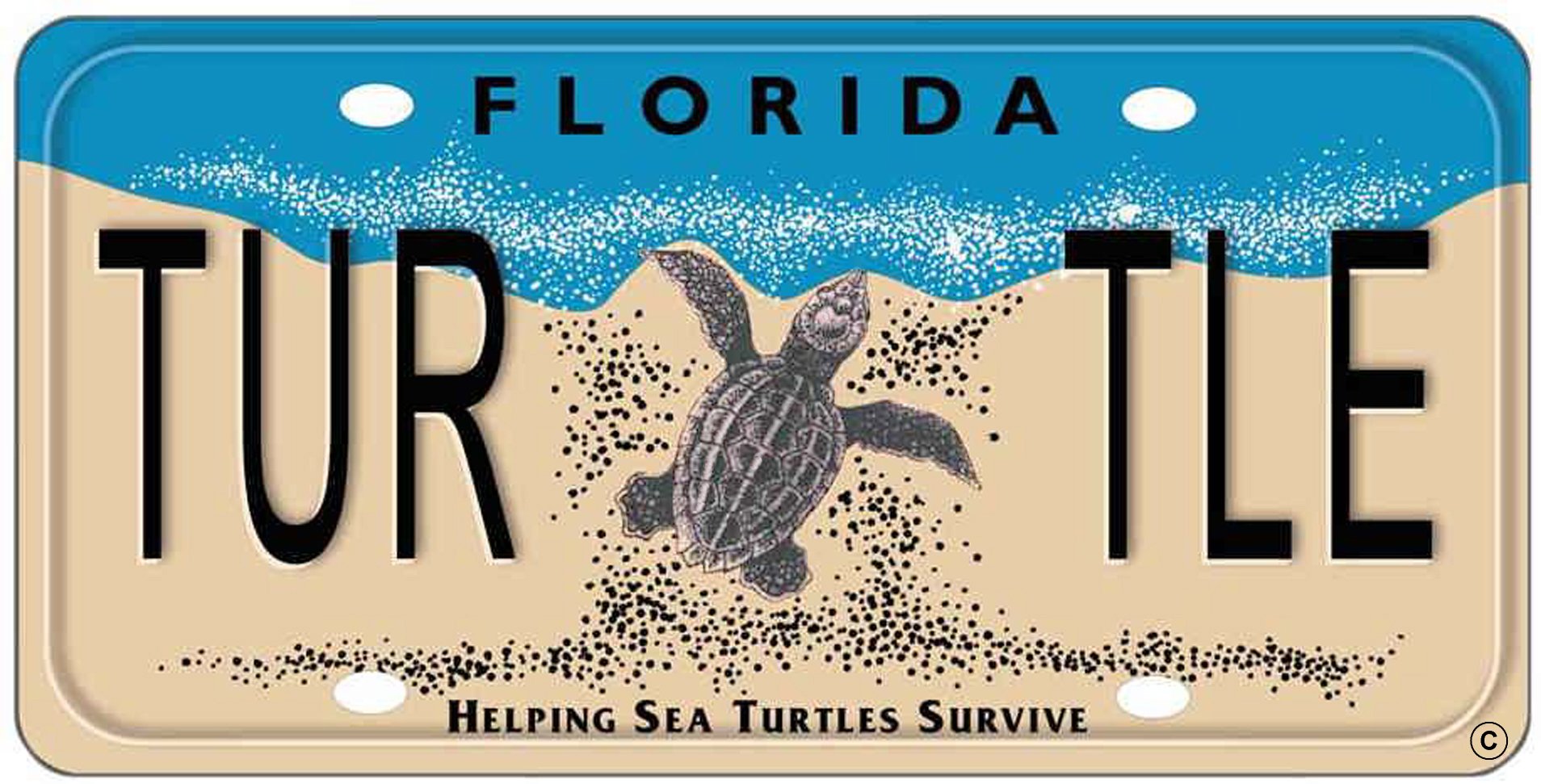Funded by a portion of revenues from Florida’s Sea Turtle Specialty License Plate, the Sea Turtle Grants Program distributes funds each year to support sea turtle research, conservation and education programs that benefit Florida sea turtles. In 2022, Sea Turtle Conservancy had three project proposals selected for funding.

2022
Seasonal Movements of Immature Kemp’s Ridley Turtles in a Warming Gulf of Mexico – $21,625.00 awarded
The Big Bend appears to play a significant role as a developmental habitat for immature and mature Kemp’s ridleys. In 2018, Sea Turtle Conservancy (STC), in collaboration with the USGS Florida Cooperative Fish and Wildlife Research Unit at the University of Florida, began conducting sea turtle research in this region and has encountered dozens of sites containing Kemp’s ridleys. Until recently there was strong evidence that Kemp’s ridleys were recovering based on nesting numbers, but recent counts have been erratic and it is unclear if the nesting population has stabilized or is in decline. In the northeastern Gulf of Mexico, Kemp’s ridleys have previously shown site fidelity to near shore areas during the warmer months, but display southerly migrations in the winter as sea surface temperatures decrease to between 18 and 22? C. However, this research was conducted several decades ago and recent warming trends in the Gulf of Mexico may be altering these migratory patterns. Understanding the distribution and habitat requirements of endangered species is one of the keys to managing their recovery. Endangered immature Kemp’s ridley turtles recruit to shallow bays and estuaries in Florida’s Big Bend region, yet very little research has been conducted to look at the possible impacts of climate change on the movements and habitat use of these turtles. The purpose of this study is to identify potential seasonal shifts in movement and diet of immature Kemp’s ridley turtles in response to changes in sea surface temperatures over the past two decades.
Sea Turtle Academy STEM: Empowering Students to Build Solutions to Sea Turtle Threats – $12,652.00 awarded
The Barrier Island Sanctuary Management and Education Center (BIC), located in the heart of the Archie Carr National Wildlife Refuge, has a responsibility to train the next generation of stewards of sea turtles and their critical nesting habitat. Sea Turtle Academy (STA) field study education programs have reached up to 3,000 students in both Brevard and Indian River Counties. There is strong demand from Title I, private and charter schools for the STA program, however, many schools lack the bus funds to attend. This project will fund bus transportation for these students. The STA program also includes a follow-up outreach program option for classes. In response to the Science and Engineering framework and cross-cutting concepts in the Next Generation Sunshine State Standards, the BIC team will create an integrated STEM (Science, Technology, Engineering and Math) outreach program that encourages students to think critically about sea turtle threats, collaborate, problem solve and build solutions to these threats. The threats sea turtles face can be sad and overwhelming to young children. However, by focusing on solutions minded thinking, the BIC team aims to empower the next generation of stewards of the Carr Refuge to not only be informed of threats sea turtles face but to also build solutions to save sea turtles from disorientation on nesting beaches, boat strikes, incidental takes by fisheries and predators on nesting beaches.
Body Condition, Blood Analytes and Diet of Juvenile Green Turtles in Florida’s Big Bend – $14,313.00 awarded
The Big Bend is a large area in the northeastern Gulf of Mexico that has a relatively low amount of coastal development and large wildlife refuges. However, there are already signs that this relatively pristine environment may be changing. Seagrass and oyster reefs have been steadily declining in the Big Bend and plans to build a freeway through the region will only increase development pressure. There is a growing need for comprehensive health checks and physiological studies on wild caught sea turtles to establish baseline values and determine their resilience in the face of deteriorating marine environments. STC, in collaboration with the University of Florida’s USGS Cooperative Fish and Wildlife Research Unit, has been conducting surveys and capturing sea turtles in the Big Bend since 2018 and has encountered multiple hotspots containing juvenile and sub-adult green turtles. This project will collect baseline sea turtle health and diet data that will be become valuable for future spatial and temporal comparisons. Baseline blood chemistry data are also extremely useful as a reference in the medical management of sea turtles under veterinary care. The health and diet results will be used to compare with the health and diet of juvenile green turtles at other developmental sites in and around Florida, as well as at sites known to have turtles with genetic ties to Florida’s nesting beaches, such as Bermuda and others throughout the Caribbean. We expect the results will help wildlife managers make informed decisions and help STC educate visitors and residents about the importance of the Big Bend to sea turtles.
To learn more about the Sea Turtle Grants program, visit www.helpingseaturtles.org.